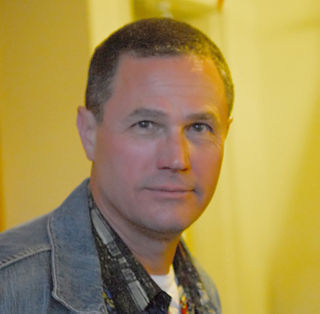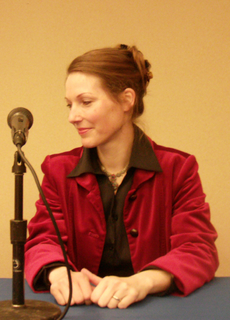A Quote by Robert Crais
I had wanted to be a novelist for so long, but I didn't have a story. That story came from the death of my father, and wrestling with how to help my mother. Writing it allowed me to work through my fears, frustrations and desires. I wanted control over the situation. And I wasn't sure I would have any in real life.
Related Quotes
I came across an old story of mine that I'd written a decade ago. The main joke of the story is that a mother is telling her children about how she met their father online. The majority of memories the mother has all have to do with really funny links he sent her, a music download that she loved, etc. - and because of these superficial details she fell in love with the father. Reading it today, it's hardly a dystopian story; it's simply a realistic story about how people actually meet.
I didn't know how story worked. So, when writing the screenplay, people introduced me to the science of it. And I'm grateful. I'll probably use that information for the rest of my career, in terms of writing novels or writing stories. And then, of course, to help me live a better story, a more meaningful story
And I felt more like me than I ever had, as if the years I'd lived so far had formed layers of skin and muscle over myself that others saw as me when the real one had been underneath all along, and I knew writing- even writing badly- had peeled away those layers, and I knew then that if I wanted to stay awake and alive, if I wanted to stay me, I would have to keep writing.
Each story presents a mystery that has to be solved in the process of writing. When I'm at work on a story, I'm completely immersed in that world and in the lives of those characters; they're utterly real to me. Then, when I've completed the story, it all just falls away. The whole compulsion to understand is over.
As I saw it, all my mother's life, my father held her down, like lead strapped to her ankles. She was buoyant by nature; she wanted to travel, go to the theater, go to museums. What he wanted was to lie on the couch with the Times over his face, so that death, when it came, wouldn't seem a significant change.
For people who are coming out of an oral tradition, it is very exciting to get into reading and writing and it is quite interesting how frequently people want to write their own story. Sometimes it is straight history - this is how we came about, how our town was created, a lot of that kind of effort, as soon as literacy came. The first thing you wanted to do was to put something down about who you are or how you are related to you neighbors. Then the next stage would be the stories, the cultural part of the story: this is the kind of world our ancestors made or aspired to.
There was a time before I felt I was a real writer, when I was a yarn spinner and I just wanted to tell story until it was over. But then there came a time where I was like, 'No, I want to understand something through writing this that I might have not understood before. I want people to come away with something to think about.'



































